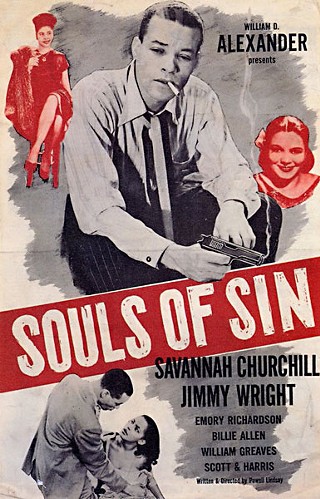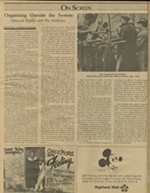The Racial Divide in Movies
The Austin Film Society peeks behind the Sepia Screen
By Louis Black, Fri., July 25, 2014
When I was growing up in Teaneck, N.J., just across from NYC, my dad owned a liquor store on 145th Street in Harlem. Occasionally my mom would bundle up my sister and me to drive to Harlem to drop my dad off or pick him up from work. Those times were memorable. Harlem was a very different world from suburban New Jersey. Besides the most obvious and overwhelming racial difference, every ad, window display, and visual media of any sort sold products that were not encountered anywhere else. Talking to my mom about this one time, she told me that there were all-black movies made for all-black audiences. "A lot like Blondie but with black people" is how she put it.
Fascinated, I began a lifelong quest for any information on these films and niche films in general (there were American-based Yiddish and Ukrainian cinemas, among other things). Beginning in the Thirties and through the Fifties there was an all-black film industry. These were films that didn't just feature black actors but had all-black casts, and sometimes there even were black creatives working behind the camera in significant roles.
A lot of these movies were very faithful genre films – Westerns, detective films, musicals, and comedies – and the conventions were upheld although the color of the actors changed. But a surprising number of socially conscious films were also produced.
In 1983, in a warehouse in Tyler, Texas, a stash of old, mostly nitrate films was found, which included 22 black film titles, the largest collection of such films discovered in decades. These ended up as the Tyler Black Film Collection in the G. William Jones Film and Video Collection at Southern Methodist University.
Importantly, a number of the most interesting titles in this collection, including The Blood of Jesus (1941), Dirty Gertie From Harlem U.S.A. (1946) and Juke Joint (1947) were produced by Sack Amusement Enterprises in Dallas, primarily an exploitation, independent, and all-black film distributor. These titles were all shot around Dallas and were directed by Spencer Williams, who would go on to TV fame as the cigar-chomping Andy in The Amos 'n Andy Show.
Beginning on July 27, the Austin Film Society will be offering an occasional series at the Marchesa, highlighting films from this archive. Included in this first program are "The Vanities" (1946), which is a short film of a nightclub performance that features impressionist Charles Keith. Dirty Gertie From Harlem U.S.A. was shot in Dallas and directed by Williams (who also appears in it). It stars the incandescent Francine Everette as Gertie LaRue, who brings her troupe of singers and dancers to the island of Rinidad. Produced by William D. Alexander, Souls of Sin (1949) is generally regarded as the last all-black film with a black producer. Famous for her recording of "I Want to Be Loved," Savannah Churchill stars as the femme fatale.
Admittedly sometimes crude and always low-budget, these films help illuminate the mundane realities of America's segregated past.
The Sepia Screen plays on Sunday, July 27, 2pm, at the Marchesa Hall & Theatre. Louis Black is a member of the Austin Film Society's board of directors.










